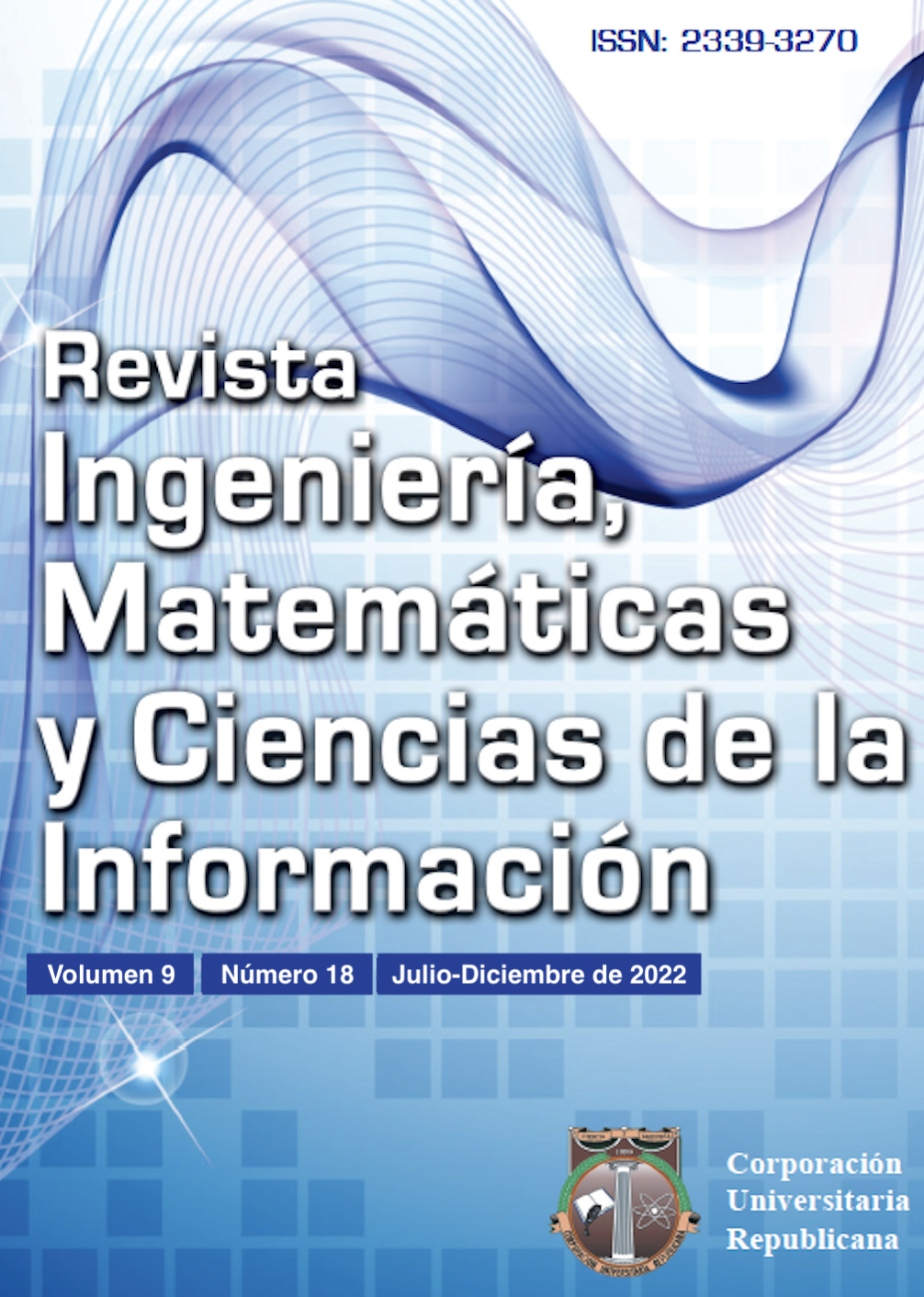MODELO MATEMÁTICO DE INTEGRACIÓN DE PRODUCCIÓN E INVENTARIOS EN UNA RED LOGÍSTICA PLANTAS, DISTRIBUIDORES Y DETALLISTAS
Mathematical model of integration of production and inventories in a logistics network plants, distributors and retailers
Sección
Artículos
Cómo citar
[1]
C. A. Pineda Pérez, “MODELO MATEMÁTICO DE INTEGRACIÓN DE PRODUCCIÓN E INVENTARIOS EN UNA RED LOGÍSTICA PLANTAS, DISTRIBUIDORES Y DETALLISTAS”, Rev. Ing. Mat. Cienc. Inf, vol. 9, no. 18, pp. 89–115, Jul. 2022, Accessed: Jun. 06, 2025. [Online]. Available: https://ojs.urepublicana.edu.co/index.php/ingenieria/article/view/823
doi
Dimensions
Licencia
Mostrar biografía de los autores
Este artículo presenta un modelo matemático de programación no lineal que coordina los inventarios y la producción en una red logística conformada por plantas, distribuidores y detallistas. El procedimiento para formular y resolver el modelo matemático utiliza programación no lineal, programación lineal, heurísticas y relajación lagrangiana por etapas.
Visitas del artículo 670 | Visitas PDF 584
Descargas
Los datos de descarga todavía no están disponibles.
- K. Govindan, V. Agarwal, J. D. Darbari, and P. C. Jha, “An integrated decision-making model for the selection of sustainable forward and reverse logistic providers,” Ann. Oper. Res., vol. 273, no. 1–2, doi:10.1007/s10479-017-2654-5. 2019.
- D. Tuljak-Suban and P. Bajec, “Integration of AHP and GTMA to make a reliable decision in complex decision making problems: Application of the logistics provider selection problem as a case study,” Symmetry (Basel)., vol. 12, no. 5, doi:10.3390/SYM12050766. 2020.
- A. Melkonyan, T. Gruchmann, F. Lohmar, V. Kamath, and S. Spinler, “Sustainability assessment of last-mile logistics and distribution strategies: The case of local food networks,” Int. J. Prod. Econ., vol. 228, doi:10.1016/j.ijpe.2020.107746. 2020.
- S. Meutia, K. Anshar, and Subhan, “Determining Supply Chain Network Using Location, Invetory, Routing Problem (LIRP) Approaches,” in Journal of Physics: Conference Series, 2021, vol. 1933, no. 1, doi: 10.1088/1742-6596/1933/1/012119.
- R. Pietron, “Cooperation platform for distributed manufacturing,” Decis. Mak. Manuf. Serv., vol. 14, no. 2, doi: 10.7494/dmms.2020.14.2.3650. 2021.
- S. Gupta, S. Chaudhary, P. Chatterjee, and M. Yazdani, “An efficient stochastic programming approach for solving transportation and inventory management problem using goodness of fit,” Kybernetes, doi:10.1108/K-08-2020-0495. 2021.
- Z. Y. Liu and P. T. Guo, “Supply Chain Decision Model Based on Blockchain: A Case Study of Fresh Food E-Commerce Supply Chain Performance Improvement,” Discret. Dyn. Nat. Soc., vol. 2021, doi:10.1155/2021/5795547. 2021.
- M. Golestani, S. H. Moosavirad, Y. Asadi, and S. Biglari, “A Multi-Objective Green Hub Location Problem with Multi Item-Multi Temperature Joint Distribution for Perishable Products in Cold Supply Chain,” Sustain. Prod. Consum., vol. 27, doi:10.1016/j.spc.2021.02.026. 2021.
- R. Agrawal, V. A. Wankhede, A. Kumar, S. Luthra, and D. Huisingh, “Progress and trends in integrating Industry 4.0 within Circular Economy: A comprehensive literature review and future research propositions,” Bus. Strateg. Environ., doi: 10.1002/bse.2910. 2021.
- L. Huang, Y. Tan, and X. Guan, “Evaluation of Cruise Ship Supply Logistics Service Providers with ANP-RBF,” J. Adv. Transp., vol. 2021, doi: 10.1155/2021/6645946. 2021.
- B. V. R. Furlanetto, F. A. S. Marins, A. F. da Silva, and C. M. Defalque, “Optimization of a logistics network considering allocation of facilities and taxation aspects,” Gest. e Prod., vol. 27, no. 4, doi:10.1590/0104-530X4918-20. 2021.
- T. Liang and H. Wang, “Consumer decisionmaking and smart logistics planning based on FPGA and convolutional neural network,” Microprocess. Microsyst., vol. 80, doi: 10.1016/j.micpro.2020.103628. 2021.
- G. Li, “Development of cold chain logistics transportation system based on 5G network and Internet of things system,” Microprocess. Microsyst., vol. 80, doi: 10.1016/j.micpro.2020.103565. 2021.
- R. Aldrighetti, D. Battini, D. Ivanov, and I. Zennaro, “Costs of resilience and disruptions in supply chain network design models: A review and future research directions,” Int. J. Prod. Econ., vol. 235, doi:10.1016/j.ijpe.2021.108103. 2021.
- A. M. Jalal, E. A. V. Toso, and R. Morabito, “Integrated approaches for logistics network planning: a systematic literature review,” International Journal of Production Research, doi: 10.1080/00207543.2021.1963875. 2021.
- S. Belieres, M. Hewitt, N. Jozefowiez, and F. Semet, "A time-expanded network reduction matheuristic for the logistics service network design problem,” Transp. Res. Part E Logist. Transp. Rev., vol. 147, doi: 10.1016/j.tre.2020.102203. 2021
- Y. Cheng and X. Pan, “Design of a Support System for Complicated Logistics Location Integrating Big Data,” Adv. Civ. Eng., vol. 2021, 2021, doi: 10.1155/2021/6697755. 2021.




